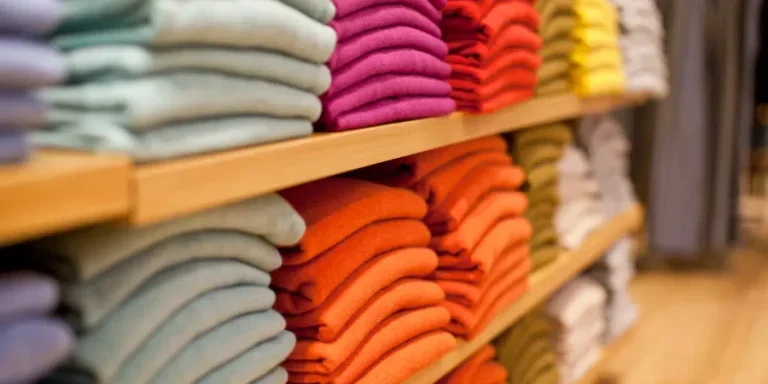A new report from data and analytics company GlobalData reveals how demographic shifts will change fashion retail in the coming years, from the rise of secondhand to the impact of ultra-fast retailers such as Shein and Temu.

The ‘Demographics in Retail and Apparel’ report says apparel will have to deal with changing consumer behaviours in the coming years as the Baby Boomer generation retires and consumers in the Millennial and Gen Z age groups become increasingly prominent.
As more members of Gen Z enter the workforce and increase their spending power, apparel brands and retailers will need to respond to a growing focus on environmental sustainability and ethical practices.
GlobalData predicts up to $8.6bn in assets will be transferred to Millennial and Gen Z consumers through family businesses and properties in the next ten years, but the big question is how this change in demographics will affect the global apparel sector.
Gen Z’s sustainability focus
Leading apparel retailers such as sports brands Adidas and Nike as well as fashion brands Primark, Shein, Uniqlo and Zara are all likely to benefit from changing demographics in the coming years and the rising prominence of Gen Z, according to GlobalData’s report.
Thanks to Gen Z’s focus on sustainability and social responsibility, sustainable retailer Reformation and secondhand fashion marketplace Vinted will enjoy growing success. GlobalData said this can already be seen with Vinted reporting a 61% increase in revenue in 2023.
“As their purchasing power will only increase, Vinted is set to continue to benefit from Gen Z,” the report notes.
Gen Z consumers are more likely than other generations to purchase secondhand products, with Italy and France having the highest proportion according to a recent consumer study by GlobalData.
Alongside this, ultra-fast fashion brand Shein, which is headquartered in Singapore is also attracting Gen Z shoppers with its low prices and volume of trend-led products. Plus, younger consumers are also more likely to order items from abroad than older generations.
Millennials eye capsule, timeless wardrobes
The Demographics in Retail and Apparel report suggests sports retailers Adidas, Lululemon and Veja; and fashion brands Uniqlo, Marks and Spencer and Zara are will benefit from the Millennial consumer becoming more prominent in terms of spending power.
GlobalData argues retailers that “transcend age groups” will be able to cater to Millennials both now and in the future. The report highlights Marks and Spencer (M&S) as a example of a retailer successfully losing its previously “frumpy” image to become a destination for all age groups.
“If it maintains this, it will be able to take consumers from cradle to grave,” the report says.
Just Style previously reported that M&S is back in fashion, as it reported a 5.3% increase in clothing and home sales in FY 2023/24 and its share of the UK clothing market increased to 10%, up from 9.6% in the previous year.
Japanese fashion brand Uniqlo is in a similar position thanks to its focus on quality products in a range of materials and sizes rather than following specific trends.
Uniqlo is also tapping into the Millennial trend for “capsule wardrobes” where consumers focus on buying fewer items and it calls its products “LifeWear” that stay with consumers for life thanks to its good quality and timeless design.
The Fast Retailing-owned brand has gone from strength to strength in recent years, estimating profits for FY24 of ¥365bn ($2.29bn) for the year ending August 2024, up from its previous estimate of ¥320bn.
Generation Alpha’s social media influence
Generation Alpha – those born between 2010 and 2025 – are expected to be super aware of trends and brands thanks to their familiarity with technology and social media.
In the coming years, the report suggests Generation Alpha “will shape trends” as they are acutely aware of brands and “have high expectations of the consumer journey” and expect it to be personalised to them.
This demographic is already fuelling trends as they are increasingly asking their parents to purchase items from premium brands such as Lululemon, Birkenstock and Ugg.
Earlier this year for example, Lululemon predicted 11-12% revenue growth for FY24 as it reported strong growth potential in China.
Baby Boomers shouldn’t be forgotten
GlobalData’s report warns fashion brands and retailers should not forget about older consumers. It highlights that those aged 60 and above will continue to desire stylish clothing as they age so retailers should focus on extending ranges to include older consumers.
GlobalData names UK brands Cotton Traders and Lands’ End as two examples of retailers that are targeting older consumers as their primary audience. However, as these consumers age it is likely they will purchase fewer items of clothing due to not being able to attend as many social events.
Meanwhile, it is unlikely that younger consumers will switch to these brands as they age. The report describes this as another area of success for Marks and Spencer as it has managed to capture new, younger consumers while not losing its traditional older base.
The report also argues the Baby Boomer demographic is becoming “more tech savvy” as it ages. Technology such as AR try-on services on retailer websites are likely to become more useful to these consumers as they age and become less able to visit physical stores.
Source from Just Style
Disclaimer: The information set forth above is provided by just-style.com independently of Alibaba.com. Alibaba.com makes no representation and warranties as to the quality and reliability of the seller and products. Alibaba.com expressly disclaims any liability for breaches pertaining to the copyright of content.




